Factories are eager for supplies of cattle, but are still trying to hold firm on last week’s quotes.
Quotes for cattle and what is actually paid for cattle are two different prices this week, with other tactics being employed to get cattle.
Factories are trying everything in their power not to increase prices, including paying haulage, offering flat deals, and a more relaxed attitude to specifications, including no penalties on overweight carcases.
General quotes for bullocks is €3.75/kg to €3.80/kg, with €3.80/kg being paid in almost all instances.
Heifers are moving at €3.85/kg, with more being paid to regular suppliers and those with numbers.
Foyle Meats Donegal is offering a 10c/kg bonus for carcases killing out between 300kg and 380kg on top of quoted prices for bullocks and heifers.
Angus and Hereford bonuses vary between 10c and 15c/kg in most factories.
Prime export benchmark
The latest prime export benchmark price shows continued growth in Ireland’s main exporting markets for beef, rising by a further 1c/kg to €3.83/kg.
The Irish prime composite price rose by 2c/kg for the same period to €3.71/kg. That means the price differential remains at 12c/kg.
Bull prices
Bulls continue to move at €3.80/kg to €3.85/kg for R grading bulls, with €3.90/kg to €3.95/kg being paid for U grading bulls.
O grading bulls are being quoted at €3.70/kg to €3.75/kg. Young bulls are generally moving off €3.75/kg to €3.80/kg before grid and in-spec payments are included.
Cows improving
Cows are still improving, with some factories increasing quotes by another 5c/kg this week to secure supplies.
P grading cows are now trading at €3.10/kg, with O grading cows moving at €3.20/kg to €3.25/kg.
R grading cows are making as high as €3.50/kg in some factories. Foyle Meats Donegal is also offering a 10c/kg bonus on quality assured cows killing out between 300kg and 380kg.
UK prices
Prices continue to improve across the water, with the Agriculture and Horticulture Development Board (AHDB) reporting a price of £386.6p/kg (€4.80/kg including VAT).
Finished cattle supplies are in short supply across the UK, with beef production there down 2% in February 2021 compared with February 2020.
Northern Ireland (NI) quotes are also showing more life, with deals of between £3.86/kg and £3.88/kg (€4.78-€4.81/kg incl VAT) being paid to regular sellers and those with good numbers.
Similar to ROI, cull cows are also in demand, with R3 cows hitting £3.00/kg (€3.72/kg incl VAT).
NI agents and factories continue to be very active online at southern marts, hoovering up a lot of factory-fit cows and other heavy cattle.
Boost
IFA livestock chair Brendan Golden said the announcement by the UK government of the revised timetable for SPS checks and controls removes uncertainty in our key export for the next number of months.
“Factories can continue to access the market without the uncertainty of the impact of additional checks and controls that were scheduled for April and July.
“This is a very positive development for beef sales and the clarity must be returned in higher prices to farmers,” he said.
“There will be no new impediments to our trade with the UK in the coming months and the strong demand for beef in that market must come through in beef prices.
“The additional access to the Japanese market for minced beef is a positive development for beef exports and must translate into higher returns," he added.
Missed opportunity in China
As reported in last week’s Irish Farmers Journal, Chinese meat imports are up 30% so far in 2021.
For the first two months of the year, China imported 1.6m tonnes of meat - up 30% on 2020 imports.
The sharp increase is being linked to domestic shortages and stock building.
Ireland remains locked out of the Chinese market for beef exports due to a case of atypical BSE found in a cow in June 2020.
For the first five months of 2020, beef exports to China hit €23m in value - up 134% on the 2019 figure for the same period.
Diplomatic efforts have failed to make any headway, with An Taoiseach Micháel Martin writing to the Chinese premier Li Keqiang earlier this year asking for the ban to be lifted.




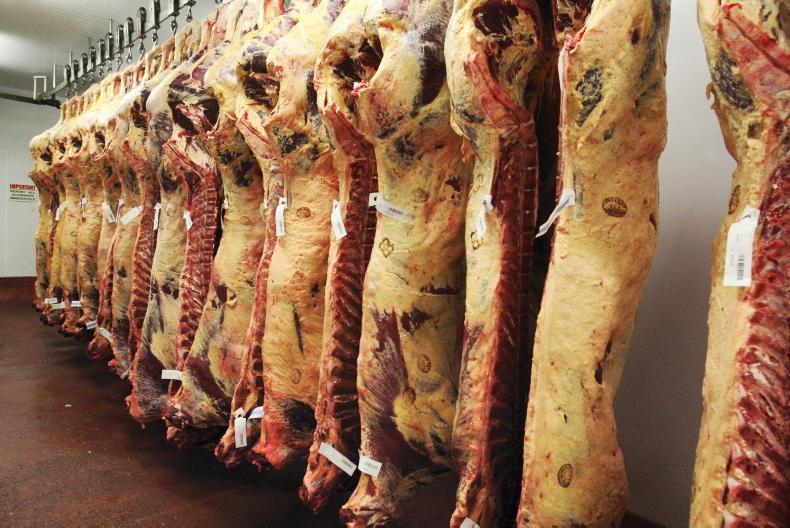
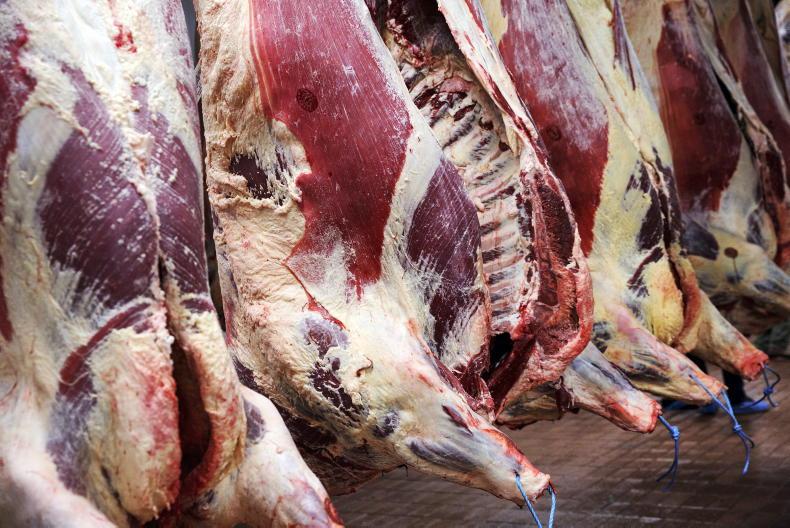

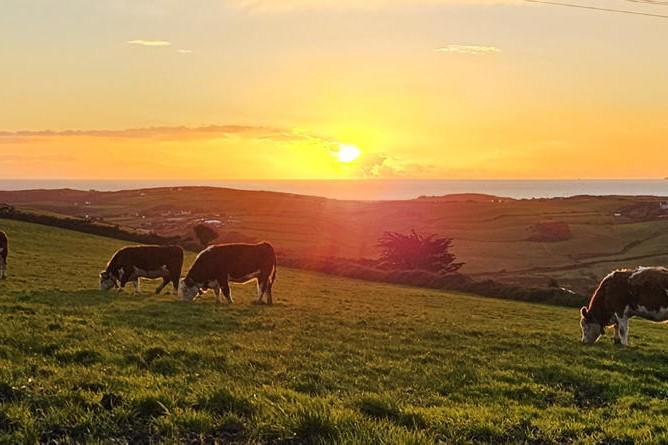
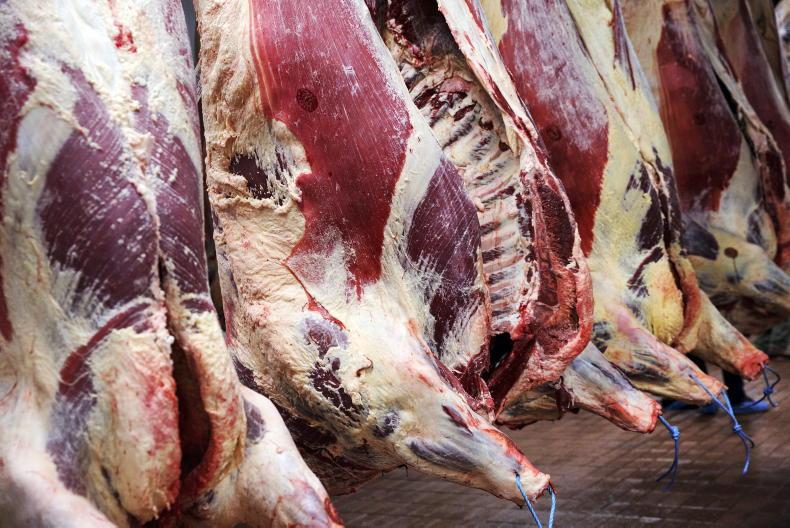
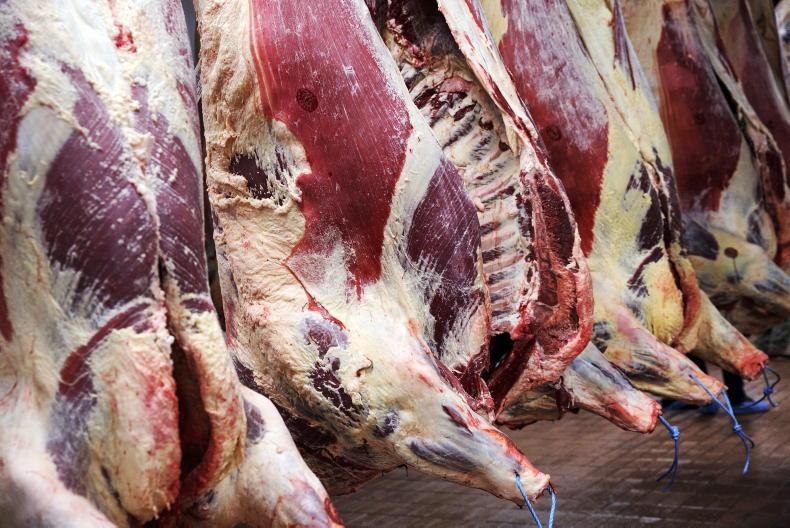
SHARING OPTIONS